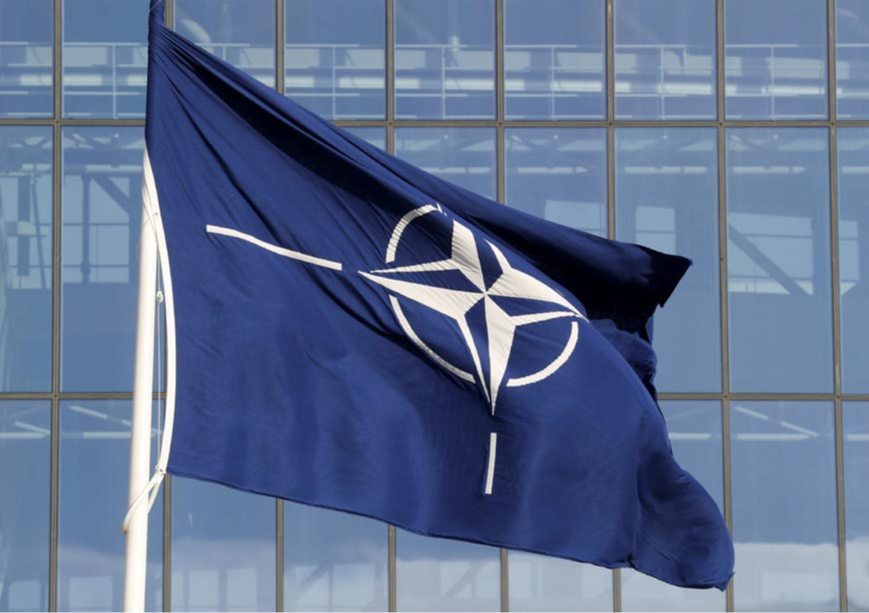
For a decade since 2014, former Norwegian Prime Minister Jens Stoltenberg has remained NATO’s Secretary General. Having had his tenure already extended thrice before, last year too, his mandate was extended by another year until October 2024 revealing the difficulties and lack of consensus within NATO in appointing a successor.
No longer “brain dead” as French President Emmanuel Macron once famously referred to the alliance, Russia’s war on Ukraine has granted NATO a renewed raison d’être. Throughout this period, Stoltenberg has maintained the alliance’s unity and built consensus in its response to Russia, making his shoes difficult to fill.
As the face of NATO, the Secretary General’s role is critical even while possessing less executive power. With creeping war fatigue, compulsions of domestic politics, and distractions such as the Israel-Hamas war, the role is important to ensure continuing military support for Ukraine and projecting strength. Like the European Union (EU), NATO also operates through consensus where decisions require the approval of all member states and the presence of spoilers such as Hungary and Türkiye complicates decision-making. Therefore, a potential candidate must be adept at forging consensus amongst the alliance’s 31 member states, navigating their demands, communicating their concerns, and managing a large bureaucracy.
With creeping war fatigue, compulsions of domestic politics, and distractions such as the Israel-Hamas war, the role is important to ensure continuing military support for Ukraine and projecting strength.
A new Secretary General would also be taking over at a critical juncture. As the alliance has expanded from 12 original countries in 1949 to 31 in the present day with the likely accession of Sweden in the near future, so too has the range and nature of threats. Today, even while tackling Russia remains its core imperative, the linking of security in what were previously considered separate theatres—the Euro-Atlantic and the Indo-Pacific—has widened the ambit of challenges to include areas such as the South China Sea. Moreover, emerging technologies, disinformation campaigns and the increasing weaponisation of trade dependencies are creating new-age disruptions.
Many candidates, no consensus
The last few months have seen several names floated around for the post along with a long list of criteria and preferences.
Given how all previous secretary generals have been male, there is a preference to have a female in the role this time. Countries in Central and Eastern Europe have been at the forefront in supporting Ukraine with their warnings on Russia proving correct, leaving many wanting a NATO head from this region. In this context, Estonian Prime Minister Kaja Kallas, whose country spent 2.85 percent on military spending in 2023, has been touted. The candidate’s home country’s record on defence spending is an important factor in selection, especially since only 8 out of 31 members fulfil their mandated 2 percent of GDP defence spending targets. Yet those in Western Europe may find a too-hawkish-on-Russia Baltic lead unwilling to carve out a future relationship with Russia.
Danish PM Mette Frederiksen fits part of the bill through her strong but not as hawkish support of Ukraine. Yet Denmark’s military expenditure at 1.38 percent of GDP stands below NATO’s 2 percent mark, and with former PM Anders Fogh Rasmussen as Secretary General in 2009-2014, the prospect of another Dane (or even another leader from the Nordics after Stoltenberg) at the helm is dim.
Countries in Central and Eastern Europe have been at the forefront in supporting Ukraine with their warnings on Russia proving correct, leaving many wanting a NATO head from this region.
Another woman touted for the role is Canada’s Deputy Prime Minister and former Foreign Minister Chrystia Freehand who has staunchly supported Ukraine and is even on Russia’s list of banned individuals. Yet Canada lags on defence spending, and a non-EU candidate will probably be vetoed by France and other countries given that 22 of NATO’s 31 members are EU countries and Stoltenberg was already from a non-EU nation. This is also why even though post-Brexit Britain is amongst Kyiv’s top backers and meets NATO’s defence spending target, former British Defence Secretary Ben Wallace’s candidacy faces resistance.
This brings us to a favourite amongst observers, European Commission president Ursula von der Leyen, with her immense experience in forging consensus at the EU level on critical issues including Ukraine support. Yet her home country Germany, despite its status as Europe’s economic powerhouse, has remained a laggard on defence spending, and her previous stint as German defence minister proved unpopular over alleged cronyism. Moreover, it remains to be seen whether von der Leyen is aiming for another term as Commission president, a position way more powerful than that of NATO Secretary General.
A key frontrunner is former Netherlands PM Mark Rutte, with close ties to the US and 13 years of experience being PM until the general elections in November 2023. However, other NATO members may not want to “go Dutch” this time in the interests of regional diversity since NATO has already had three previous Dutch heads. Moreover, despite donating generously to Ukraine, his country’s abysmal figures on defence spending—only 1.7 percent of GDP in 2023—go against Rutte.
Thus, despite several potential NATO chief candidates, most check certain boxes but not others. Besides, despite making the news in this context, it is not even clear if some of these supposed candidates are interested or available for the role.
Despite donating generously to Ukraine, his country’s abysmal figures on defence spending—only 1.7 percent of GDP in 2023—go against Rutte.
The selection is further complicated with both EU and US elections scheduled this year. In Europe, there are fears of the post becoming a consolation prize in the larger effort for the more influential EU institution roles. These are accompanied by greater fears of a potential Trump win in the US, whose disdain for NATO coupled with threats of a US pull-out, are well known. Given the influence of the US as the permanent holder of the role of Supreme Allied Commander Europe (SACEUR), the NATO chief needs Washington’s approval and be able to balance close transatlantic ties.
With the spectrum of threats steadily expanding and war continuing to rage on the European continent, NATO member states need to make a decisive choice.
Shairee Malhotra is an Associate Fellow at the Observer Research Foundation
The views expressed above belong to the author(s). ORF research and analyses now available on Telegram! Click here to access our curated content — blogs, longforms and interviews.




 PREV
PREV


